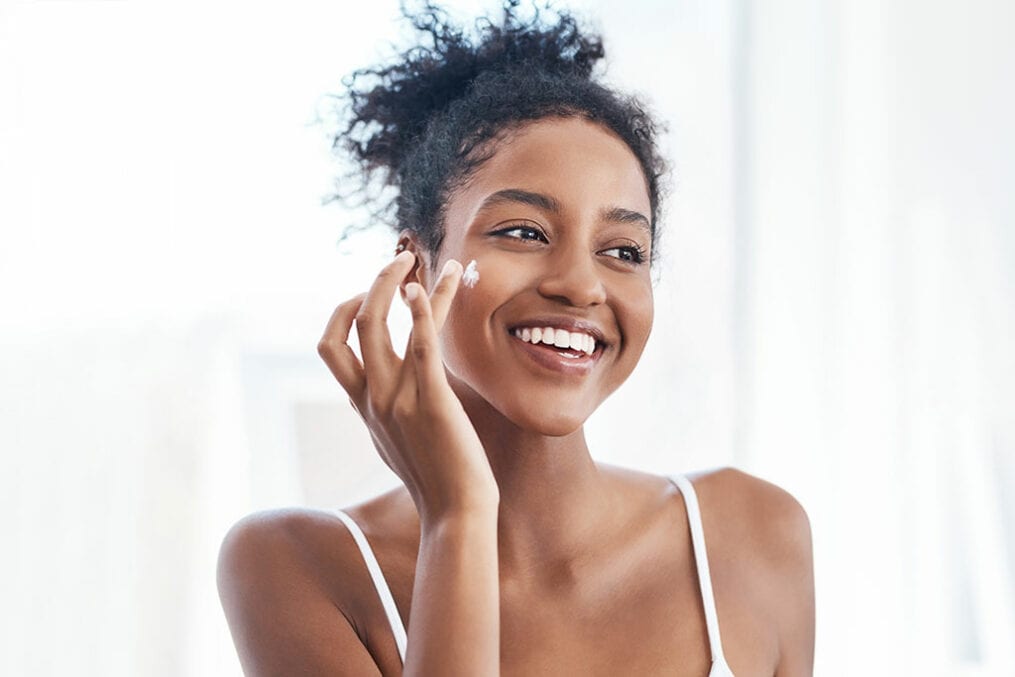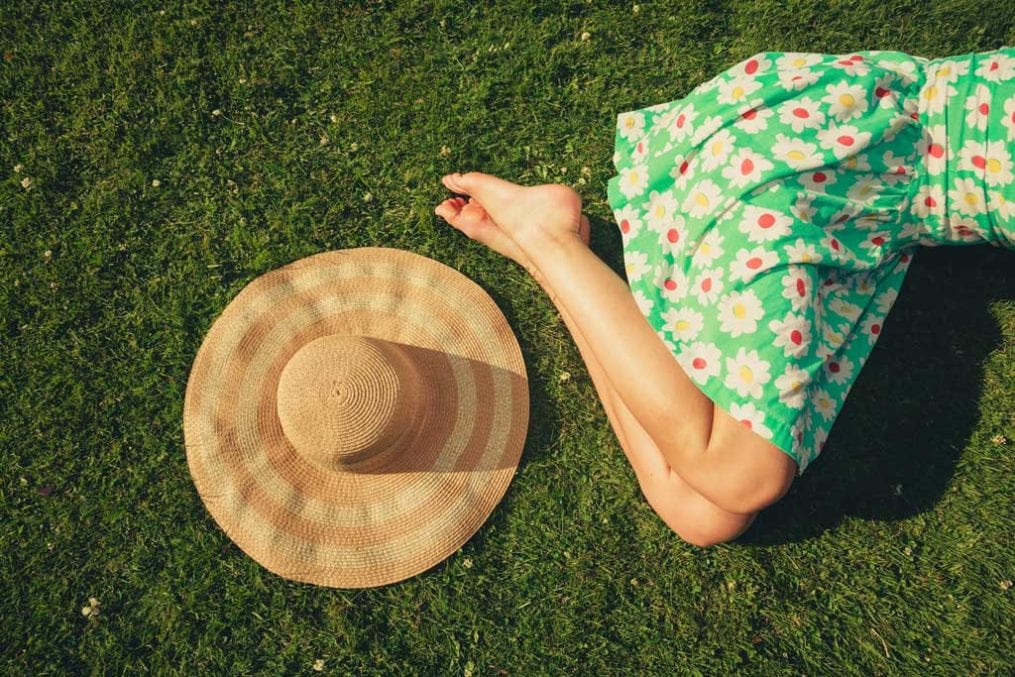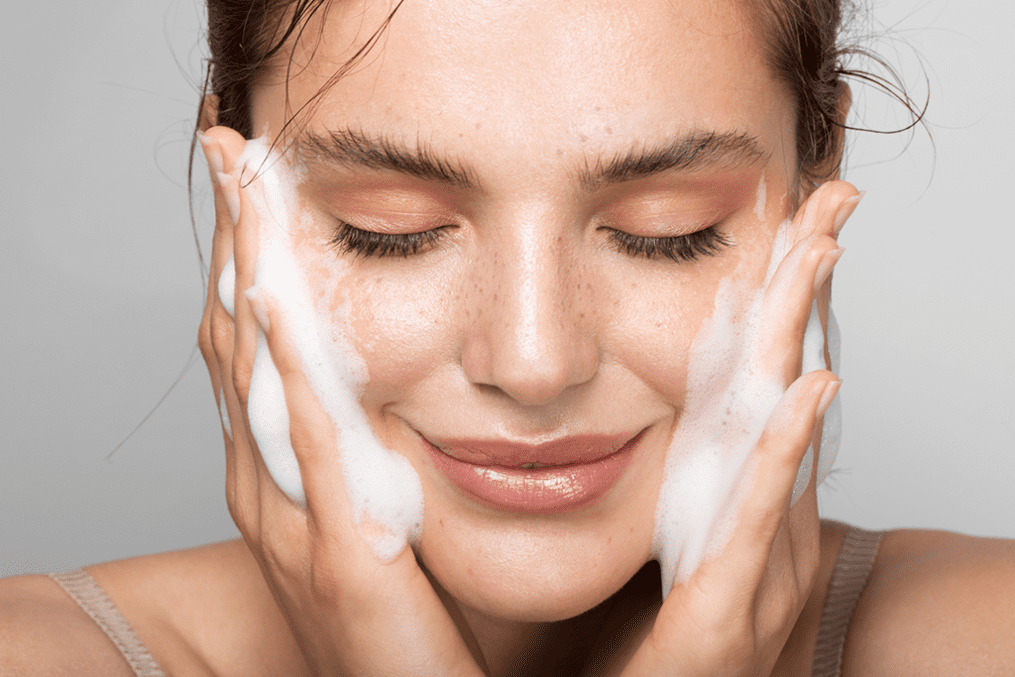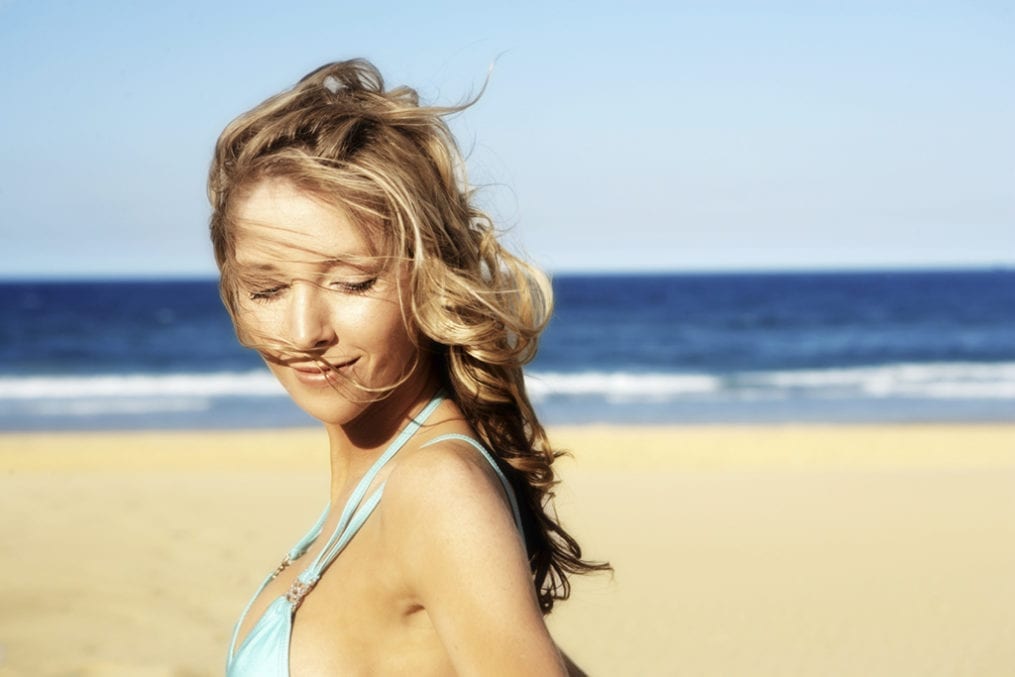The real woman’s guide to summer skincare
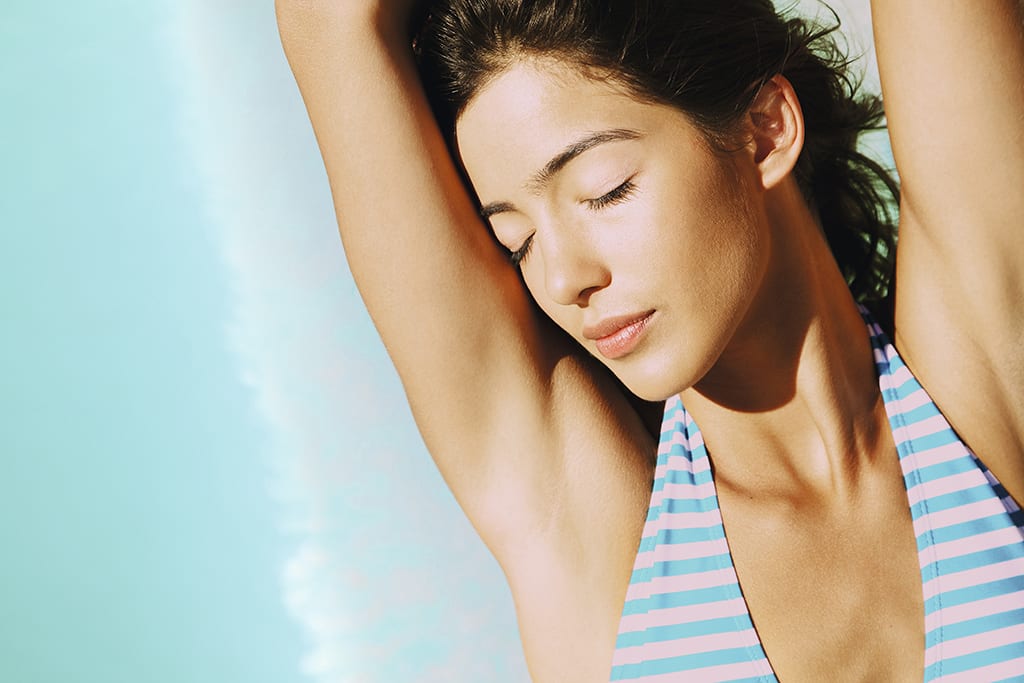
Come summertime, most of us can’t resist the allure of waving goodbye to the winter pallor we’ve been carrying around like a stubborn sheet mask.
The fact of the matter is, whatever we know about sun damage, we are going to go out in the sun, and with adult acne on the rise, there’s even more reason to get your glow on.
‘Summer can be very good for skin,’ says Dr Justine Hextall, consultant dermatologist at the Harley Medical Group. ‘When you get out in the sun, a lot of skin conditions settle down, and skin is generally more hydrated and a bit calmer. But, like any medicine, it’s how you take it.’
This summer, we want women everywhere to embrace the era of skin positivity and feel proud to show off their skin. Follow these simple rules to uncover your best-ever summer skin:
1 Use SPF (we know, but we can’t not talk about it, can we?)
Unsurprisingly, the top summer skin concern is sun damage, and sun ageing in particular. ‘We know that 80 per cent of the visible signs of ageing are the result of sun exposure,’ says Dr Hextall. ‘But don’t let that ruin your holiday!’
She advises using a broad-spectrum sun cream. ‘Check it has good UVA and UVB protection. SPF only refers to the UVB or UV burning protection. But UVA, a longer wavelength, is equally damaging and more associated with ageing, wrinkles and damaging collagen – the skin’s scaffolding.’
Beauty Kitchen’s Invisible Mineral Shield SPF30 is 100 per cent natural and has five-star UVA protection or, for more intense rays, try Ultrasun’s SPF50 all-natural Face Mineral Sunscreen.
Read more: Your summer skin checklist
2 Fight pigmentation
With a Tom Jones-worthy tan often also comes skin tone issues. ‘Increased sun exposure and hormones can influence the pigmentation of the skin,’ says Dr Hextall. ‘So if you’re on the contraceptive pill you may be more prone to melasma [brown or greyish patches on the skin].’
She recommends practical measures – turning your back to the sun when eating lunch outside, wearing hats and sunglasses – as well as investing in a prime pigmentation-fighting kit.
Follow the rules from earlier regarding SPF, and top up with pure zinc oxide. ‘Apply to your nose, ears, the tops of your cheekbones – any areas the sun hits first that can really burn. Plus, they’re all high-risk areas for skin cancer so it’s a good idea anyway.’
As well as sun protection, antioxidants are crucial in the fight against pigmentation. ‘Vitamin C is great – it suppresses the enzymes which support pigmentation, and gives a gorgeous glow.’
Apply four drops of a vitamin C serum like Jãsön CEffects Hyper-C Serum in the morning before your sun protection.
3 Clean up your act
As well as extra measures, there are changes we can make to our usual routines to ensure we’re working in harmony with the good weather.
‘During the winter, our skin barrier is a lot more fragile, so we need to use much lighter cleansers that won’t take the oils from and dry out your skin,’ says Dr Hextall. ‘During the summer months, you might sweat a bit more and be using suncreams, so you might feel better using a more active cleanser, or one you rinse off, as opposed to more gentle cream cleansers – and that’s totally fine.’
For effective, fresh cleansing without stripping the skin, try Sukin Foaming Facial Cleanser.
Dr Hextall also recommends taking summer activities into consideration. ‘If you’re swimming a lot, that’s great. But pool water can be quite stripping to the skin barrier and dry you out a bit. The minute you get out of the pool, rinse that water off your skin.’
4 Go easy on the moisturiser
You might think the summer heat would dry out your skin, but when it comes to hydration we can actually pare back.
‘You can go from a cream to a light lotion, as you lose less water during the summer months when the skin barrier is better at doing its natural job,’ says Dr Hextall.
Plus, if you’re already applying SPF, you don’t want to layer up with a thick moisturiser. Andalou Acai + White Tea Oil-Free Moisturiser offers lightweight hydration and is perfect for humid conditions.
In general, the skin barrier will do its own job more effectively in the summer. However, sunlight can dry some conditions like acne or rosacea, so pay attention to your own needs.
If you’re a fan of cooling facial mists, Dr Hextall recommends opting for those containing humectants, which attract water to the skin. Try Beauty Kitchen Seahorse Plankton Active Infusion Hydrating Mist, which uses moisture-binding pentylene glycol.
Read more: 10 summer beauty hacks
5 Go bare
When it comes to summer make-up, it really is a case of making hay while the sun shines. ‘A lot of people find sunshine improves their acne, and we know it’s good for conditions such as psoriasis,’ says Dr Hextall. ‘From a dermatology point of view, skin can be much healthier and look more radiant in the summer – so it’s a perfect excuse to go bare.’
If you prefer some coverage, Dr Hextall recommends light, oil-free bases to avoid suffocating skin and blocking pores. ‘Go for products with light-reflecting particles. They divert light away from problem areas, are much better for your skin and are far more successful in hiding skin eruptions than really heavy bases.’ Try Pacifica Alight Multi-Mineral BB Cream.
To cover pigmentation, Dr Hextall advises opting for a concealer with a slight yellow base.
6 Bed down, fix up
Don’t think that as the sun sets so does the need to look after your skin. ‘After a long day in the sun, it’s crucial to repair skin,’ says Dr Hextall. ‘At night-time you should be using products to support your collagen, soothe your skin and protect from free radical damage.’
Her top tip? Antioxidants. ‘Resveratrol is a great one to use on your skin overnight, and you can even take supplements.’ Apply Andalou Resveratrol Q10 Night Repair Cream, and for an extra boost take Holland & Barrett Resveratrol Tablets with evening meals.
‘A really healthy diet will also help with skin repair,’ advises Dr Hextall. ‘Try to eat a rainbow of fruits and veggies – berries, peppers and tomatoes are packed with antioxidants.’
Read more: Is there a safe way to get a natural tan?



